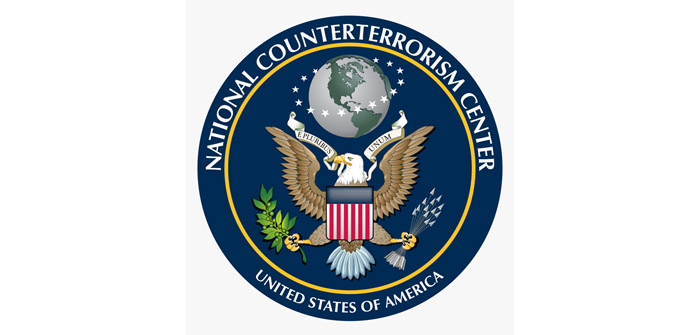Frances Townsend has been a part of the United States justice or security apparatus — first at the Department of Justice and later at the White House — for almost 30 years and spent 2004 through 2008 as the homeland security adviser.
She has some background on geopolitics and, more specifically, what it takes to effectively negotiate with hostile regimes, such as Iran.
And that experience has become more and more in demand. Authoritarianism has been on the rise as autocratic leaders have emerged not just with traditional U.S. political and economic rivals but in areas that at one time or another were considered “friendly” to U.S. interests.
“Throughout history, the United States has cemented its place in the geopolitical landscape as the dominant global power by advocating for democratic values and rule of law not just with rhetoric, but with action,” Townsend wrote in an op-ed for The Hill.
“With Russia’s unprovoked attack on Ukraine as the backdrop of present-day negotiations with Iran, this point is all the more salient. How should our adversaries, or allies, perceive us if history shows our actions repeatedly have been reduced to just words?”
While countries such as China, Kazakhstan, and Russia remain qualified as either “dictatorships” or “autocracies” by the World Population Review, many countries that were previously thought of as either friendly or at least neutral to U.S. interests have managed to find their way down that path.
That includes Turkey (President Recep Erdogan), Belarus (President Alexander Lukashenko), and the Taliban-controlled Afghanistan, among others, all of which occupy areas of strategic importance to the United States.
While each country is different, Frances Townsend believes that good-faith negotiations, whether about human rights, economic policies, or even nuclear capability, are vital to finding areas of compromise that keep the world on a stable footing.
Many times those elements intersect, as they currently do, with Iran.
Wrote Townsend: “A good-faith negotiation requires no preconditions on the part of Iran. It would require the regime to stop targeting American officials. No subject should be off-limits.”
For example, Iran took Swedish Iranian national Ahmadreza Djalali, an emergency medicine specialist, hostage during a business trip to Iran in 2016 under suspicion of spying for Israel, according to Iranian authorities. Djalali later stated he was “forced to confess” under duress and was sentenced to death in what many human rights groups called a sham trial.
Frances Townsend believes, as do many others, that the pending execution of Djalali is a direct ploy to force the hand of the Swedish government to release Hamid Nouri.
Nouri, an Iranian official detained in Sweden in 2019 and put on trial for “murder and war crimes” stemming from the 1988 massacre of between 2,800 and 3,800 Iranian political prisoners, is expected to be sentenced in the coming weeks.
Specifically, Nouri is accused of providing names to prosecutors, issuing death sentences to said persons, and even taking prisoners to the chambers where they were executed.
Frances Townsend, and groups such as the Iran Threat Commission — a nonpartisan organization that works on policy issues related to Iran’s habit of hostage taking to improve its negotiation position on everything from economic sanctions to nuclear de-escalation — have been working on how to handle what game theorists call a “nonrational player”.
In her op-ed for The Hill, Townsend wrote, ”Yet, in coming to the bargaining table with Iran before demanding accountability for threats against former U.S. government officials, the Biden administration has undermined our nation’s hard-won strength as a global superpower.”
She contends that even going to the table with Iran while it continues to operate outside established international norms allows the regime to “manipulate American diplomacy” and that it will continue to do so until “the U.S. holds the (Iranian) government accountable, specifically on issues beyond Iran’s nuclear capabilities.”
In essence, Frances Townsend believes, and she is not alone in this, that Iran is actively participating in what is known as “bad faith negotiation.”
Bad faith negotiation is qualified as a concept in negotiation theory that says at least one party involved has no real intention of reaching a compromise and uses the process for political effect.
While Iran has negotiated previous agreements with the United States and other European nations, notably the 2015 Iran nuclear deal, known more formally as the Joint Comprehensive Plan of Action (JCPOA), it has taken advantage of any missteps the other parties have made.
The largest of those missteps was the removal of the U.S. from the 2015 deal by the Trump administration, which Iran used as an excuse to start violating its own accords by saying that the U.S. reneged on its end.
Iran exceeded its agreed-upon limits for stockpiles of low-enriched uranium in 2019 and began enriching uranium to higher concentrations. It developed new centrifuges and accelerated uranium enrichment and resumed heavy water production in its Arak facility.
In 2020, it constructed a centrifuge production center at Natanz to replace the one it claimed was destroyed in an attack by Israel. Later that year, in response to what it said was an assassination of a prominent nuclear scientist, also blamed on Israel, Iran’s parliament passed a law that led to a substantial boost in uranium enrichment at its facility in Fordow.
While it’s clear Iran had these ambitions even without the so-called attacks and agreement violations, the actions themselves gave Iran all the reason it needed to get what it wanted.
Townsend and her peers see this as the major issue. While negotiation should not be completely abandoned, Townsend et al. see the regime as simply going through the motions with the process and waiting for scenarios that would give it plausible reasoning to violate aspects of the agreement they disagree with.
As stated in her op-ed, “A saying emerged from U.S.-Iran dealings amid the Iranian Revolution of 1978: ‘One must not come to the negotiating table if the person sitting across the table has a gun in their lap.’” Townsend feels that any negotiations taking place are being done while Iran has “a gun in its lap,” and therefore can’t truly be considered a good-faith process.
But the solution to holding Iran accountable is tricky. As negotiation is predicated on mutual interest for all parties involved, Townsend says that until Iran is able to faithfully respect its agreements and not rely on disinformation and false flags to get what it wants at the table, any efforts to engage with them are likely to be fruitless.





